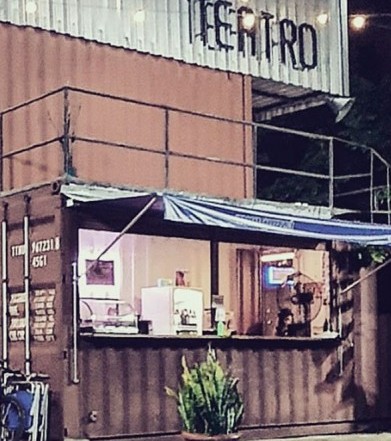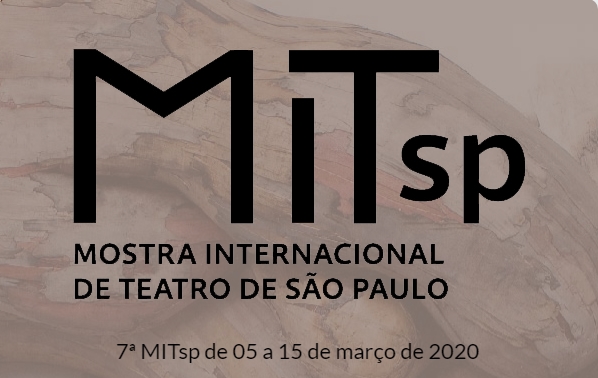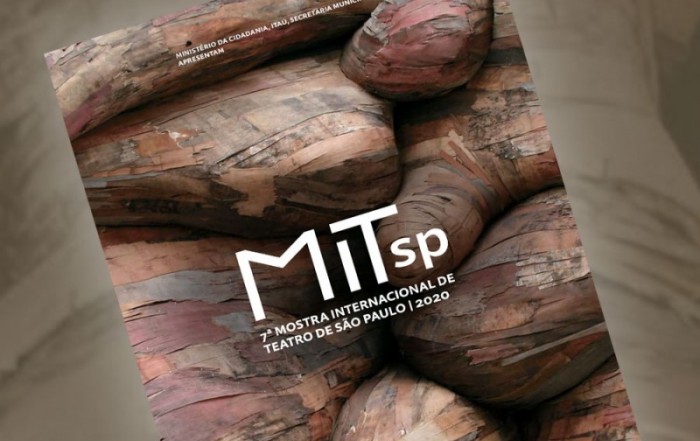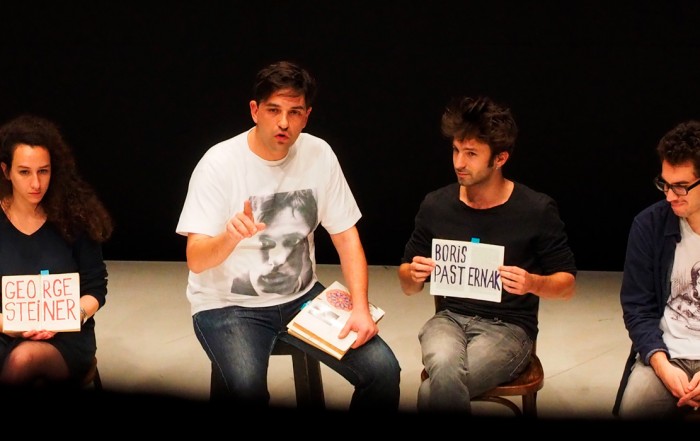BETWEEN THE LINES
Original Title: Entrelinhas
Coletivo Ponto Art
SALVADOR / BA, 2012 | 35min | PARENTAL RATING 18+
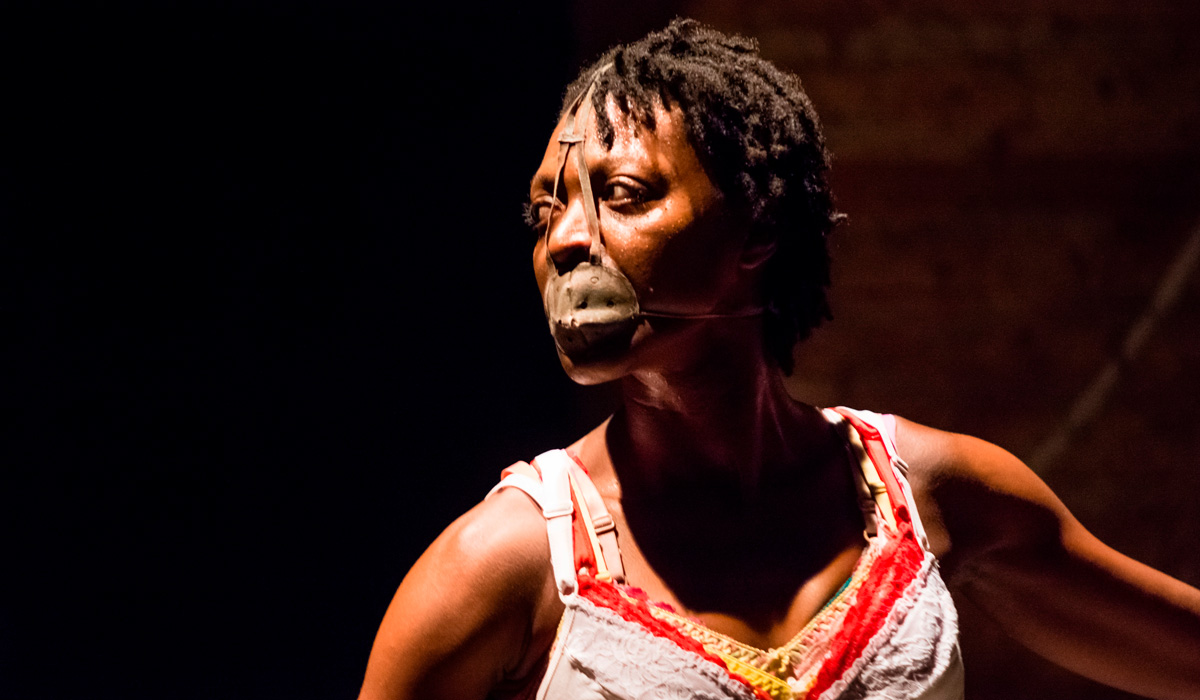
©Ives Padilha
14/3, at 19h
15/3, at 16h
PLACE: Teatro Cacilda Becker

In a dialogue between the past and the present, the show discusses violence against women and shows how the voice of black women has historically been silenced within an oppressive, sexist and slave-like society – and, thus, incites violence. Choreographer and performer Jaqueline Elesbão stitches an essentially visual narrative, almost wordless, which presents a series of images and historical references (symbols that determine female existence). On stage, the artist brings objects such as a Flanders mask – used during the Brazilian slavery period, to prevent slaves from eating food and drinks, and evoked in the image of Anastácia, a servant subjected to torture sessions while the device covered her mouth. . Swaying between the victim and executioner characters, Elesbão also shows religious elements and feminine clothes, such as the bra and high heels, icons of freedom and ties of the woman’s body.
 This is the first work of Coletivo Ponto Art, which has focused on affirmative cultural actions since 2011. The group is formed by Nai Meneses, Anderson Gavião and Jaqueline Elesbão, creator of the project, dancer, black woman, drag king, producer and activist of feminine issues, Afrodiasporic and LGBTQI + causes. Since its debut in 2012, Between the Lines toured festivals such as Cena Brasil Internacional (RJ) and FIT – São José do Rio Preto International Theatre Festival (SP). The show’s research unfolded in other works of the group, such as the web series Vozes sem Medo and the workshop Resiliência do Corpo-História, a study of how historical social violence affects the female black body.
This is the first work of Coletivo Ponto Art, which has focused on affirmative cultural actions since 2011. The group is formed by Nai Meneses, Anderson Gavião and Jaqueline Elesbão, creator of the project, dancer, black woman, drag king, producer and activist of feminine issues, Afrodiasporic and LGBTQI + causes. Since its debut in 2012, Between the Lines toured festivals such as Cena Brasil Internacional (RJ) and FIT – São José do Rio Preto International Theatre Festival (SP). The show’s research unfolded in other works of the group, such as the web series Vozes sem Medo and the workshop Resiliência do Corpo-História, a study of how historical social violence affects the female black body.
CRITICS
The vigour comes from the images revealing the violation and abuse of these bodies. Thus, the show features several scores whose images are so powerful that any speech would only underline what is already in place. The almost absence of words during the show also highlights the attempt to silence women over the centuries. And, mainly, of black women who, in the gender hierarchy, are the ones who most die and suffer from domestic violence.
![]()
CHOREOGRAPHER AND INTERPRETER: Jaqueline Elesbão
PRODUCTION: Nai Meneses
SOUND DESIGN: Anderson Gavião
LIGHTING: Robson Poeta
COSTUMES: Luiz Santana
